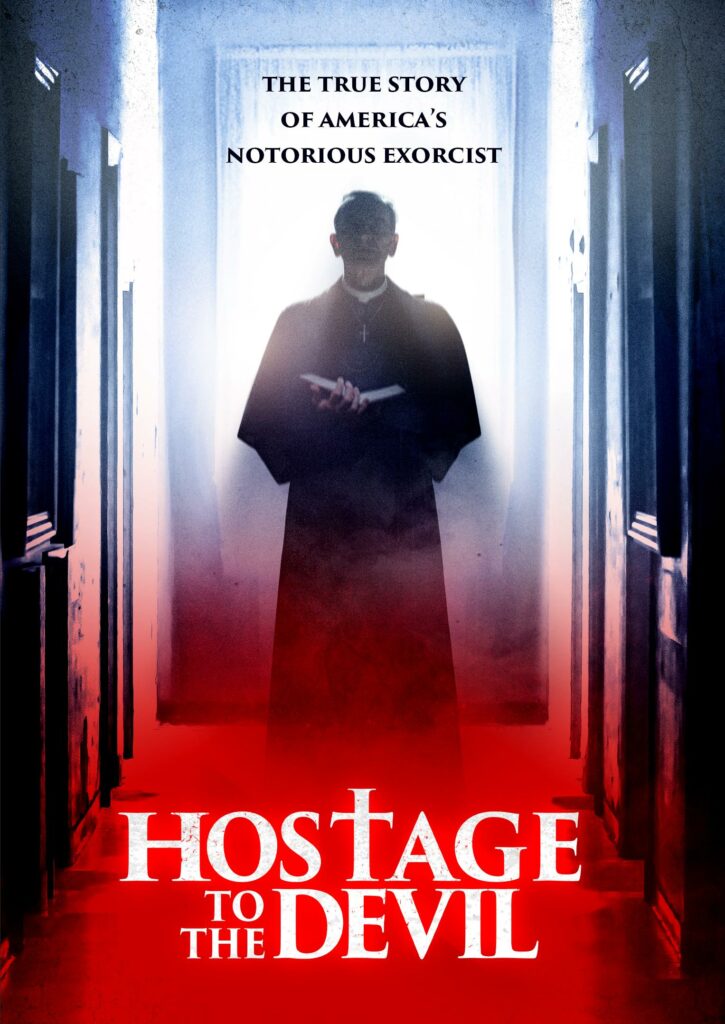
Hostage to the Devil (2016), directed by Marty Stalker, is a documentary that delves into the life and work of Father Malachi Martin, an Irish Jesuit priest renowned for his involvement in exorcisms and his writings on demonic possession. The film seeks to explore the complex and controversial aspects of Martin’s career, examining his beliefs, practices, and the broader implications of his work within the realms of faith and the supernatural. Now available on https://123movies26.com/, the documentary offers a chilling yet thought-provoking look at spiritual warfare and one man’s mission to confront what he believed to be the ultimate evil.
Plot Summary
Hostage to the Devil (2016) is a documentary that explores the life and work of Father Malachi Martin, an Irish Jesuit priest known for his involvement in exorcisms and his writings on demonic possession. The film delves into Martin’s journey from his early days in Ireland to his influential role within the Vatican and his subsequent move to the United States. It highlights his participation in numerous exorcisms and his authorship of several books, most notably Hostage to the Devil, which details accounts of demonic possession and exorcism. Through archival footage, interviews with colleagues, critics, and witnesses, the documentary paints a portrait of a man deeply entrenched in the battle against what he perceived as the forces of evil.
Cast & Performances
The documentary features a range of individuals who provide insights into Father Malachi Martin’s life and work:
- Father Malachi Martin: Appearing through archival footage, Martin shares his experiences and perspectives on exorcism and the presence of evil.
- Eugene O’Neill: A Catholic priest and commentator who discusses the theological aspects of exorcism and Martin’s role within the Church.
- Robert Blair Kaiser: A former Jesuit priest and author who offers a critical viewpoint on Martin’s work and the controversies surrounding him.
- Robert Marro: A friend of Martin who provides personal anecdotes and insights into Martin’s character and beliefs.
- Lila Karpf: Martin’s literary agent and friend, discussing his writings and the impact they had on the public’s understanding of exorcism.
- Lorraine Warren: A renowned paranormal investigator who collaborated with Martin on various cases, sharing her experiences and observations.
- Ralph Sarchie: A former NYPD sergeant and traditionalist Catholic demonologist who discusses his own experiences with exorcism and reflects on Martin’s influence in the field.
These contributors, among others, provide a multifaceted view of Father Malachi Martin, his work, and the broader implications of his beliefs and practices.
Synopsis
The documentary chronicles Father Malachi Martin’s journey from his early days in Ireland to his influential role within the Vatican and subsequent move to the United States. It highlights his participation in numerous exorcisms and his authorship of several books, most notably Hostage to the Devil, which details accounts of demonic possession and exorcism. Through archival footage, interviews with colleagues, critics, and witnesses, the film paints a portrait of a man deeply entrenched in the battle against what he perceived as the forces of evil.
Direction and Cinematography
Marty Stalker employs a combination of interviews, reenactments, and archival materials to construct the narrative. The cinematography is characterized by its dark and moody aesthetic, aiming to evoke a sense of unease and mystery that aligns with the film’s subject matter. However, some critics have noted that the reliance on dramatizations and the film’s atmospheric tone may overshadow the factual content, leading to a presentation that feels more sensational than informative.
Themes and Analysis
At its core, Hostage to the Devil explores themes of faith, belief, and the eternal struggle between good and evil. It raises questions about the nature of demonic possession and the psychological and spiritual dimensions involved. The documentary also touches upon the skepticism and controversy surrounding exorcisms, presenting perspectives that both support and challenge Martin’s assertions. This dichotomy invites viewers to reflect on their own beliefs and the complexities inherent in distinguishing between supernatural phenomena and psychological conditions.
Reception
The film has received mixed reviews from both critics and audiences. Some viewers appreciate its eerie atmosphere and the insight into Father Martin’s life, while others criticize it for lacking depth and failing to provide a balanced perspective. For instance, a review from Horror DNA describes the documentary as a “shallow attempt to question the legitimacy of Malachi Martin’s work,” suggesting that it does not delve deeply enough into the complexities of its subject. Additionally, some audience members have expressed dissatisfaction with the film’s handling of Martin’s quotes and the inclusion of certain interviews, feeling that these choices misrepresent Martin’s character and work.
Conclusion
Hostage to the Devil offers an intriguing glimpse into the enigmatic world of exorcism through the lens of one of its most controversial figures. While the documentary succeeds in creating a haunting atmosphere and presenting various viewpoints, it may leave some viewers desiring a more thorough and critical exploration of its subject matter. For those interested in the intersection of religion, psychology, and the supernatural, the film serves as a starting point for further inquiry into the mysteries surrounding demonic possession and the individuals who confront it.
